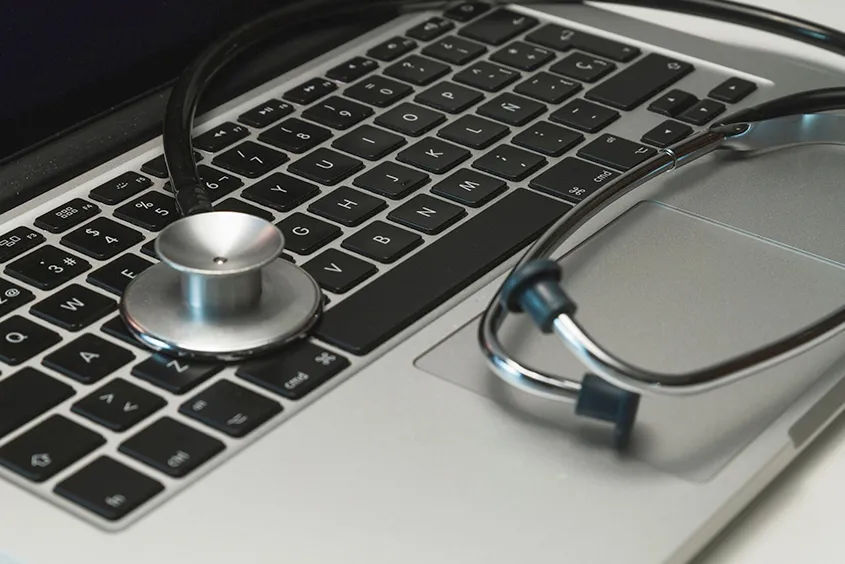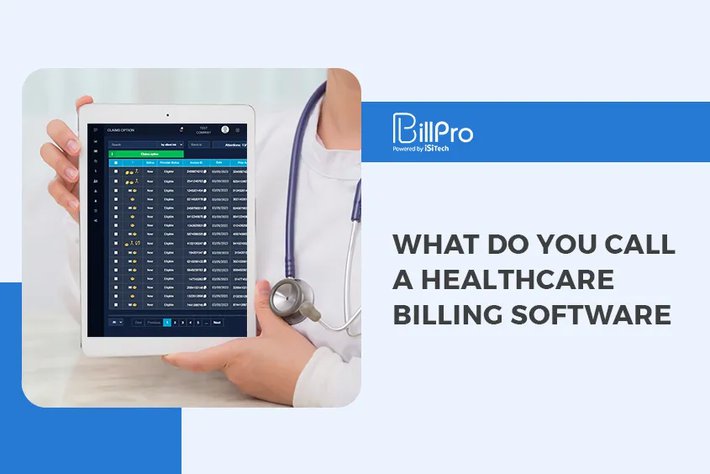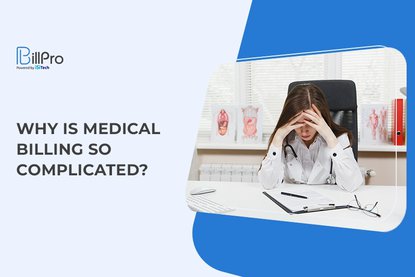At the face of it, the healthcare industry is continuously evolving and adapting. With new technologies emerging, there is tremendous scope to improve patient care.
However, it’s the behind-the-scenes processes like medical billing that equates patient care to revenue. After all, healthcare facilities must maintain accurate finances to continue operating while embracing innovation.
Medical billing is, therefore, a crucial cog in the healthcare machinery. It involves generating and submitting claims to insurance companies or government healthcare programs. Providers would be reimbursed for the medical services provided to patients.
Leveraging technology in medical billing streamlines the whole billing process. This is where medical billing software comes in.
Medical billing software automates and streamlines billing and coding. It ensures accurate and timely billing by helping in the creation, submission, and tracking of medical claims. It ensures accurate and timely billing.
Types of Medical Billing Systems
Generally speaking, there are three types of medical billing systems based on their use case. The distinctions also depend on the purpose of the healthcare organizations that use them.
Closed Systems
A closed medical billing system is ideal for a singular practice. It is an internal process-facing solution.
Electronic Health Records (EHR) is an example of a closed system. These are digital versions of traditional paper charts. They serve the internal documentation needs of a specific healthcare facility.
These systems do not ease collaboration or data sharing. Other healthcare professionals or entities must be contacted separately. A closed system cannot coordinate with labs or urgent care centers.
Open Systems
These systems allow the exchange of data among multiple healthcare practices. Think of it as a collaborative record-keeping EHR. It enables many stakeholders to access and contribute to a patient's healthcare information.
Open medical systems help ensure efficient communication. All physicians, technicians, and insurance companies remain in the loop. It also eases interoperability between medical billing software solutions across facilities.
That said, with an open billing system, data privacy must be prioritized. The system and all involved entities must comply with all regulations, such as HIPAA. This ensures that Protected Health Information (PHI) remains secure at all times.
Isolated Systems
Isolated medical billing systems operate independently of healthcare facilities, physicians, and practices. They are purely for personal health record (PHR) management.
It’s where the patients hold and manage their own health information. PHRs are separate from official healthcare records like EHRs. They are primarily meant to help individuals manage their health data.
It is important to note that PHRs should not replace official medical records. They are to be used as supplementary information sources. That said, achieving seamless data transfer from isolated systems requires open communication and software integration.
As we’ve seen, closed, open, and isolated systems involve different degrees of collaboration and data accessibility. The choice comes down to the needs and preferences of healthcare practices. It also depends on data-sharing policies and compliance with privacy regulations.
Key Features of Medical Billing Software Programs
 The features of medical billing software programs streamline the billing process. They also enhance revenue management for healthcare providers.
The features of medical billing software programs streamline the billing process. They also enhance revenue management for healthcare providers.
Let’s look at some key features that medical billing software offerings bring to the table:
Claims Management
Medical billing software helps generate, submit, and track insurance claims electronically. To that end, it enables accurate coding.
Healthcare institutions can easily track the status of all claims, enabling them to efficiently follow up on claims and pursue reimbursement.
Coding Assistance
Medical coding is an integral element of the claims process, and it goes hand-in-hand with medical billing. Similarly, medical billing software ought to integrate well with coding databases. The databases include Current Procedural Terminology (CPT) and the International Classification of Disease (ICD).
Billing software essentially streamlines the coding process and minimizes errors. It also ensures compliance with coding guidelines. In effect, medical billing software does what medical billing and coders do, but better.
Patient Information Management
Medical billing software is crucial for securely managing patient data such as demographic details, insurance information, and medical history.
It also helps verify patient eligibility, determine insurance coverage, and, in the process, facilitate accurate billing.
Eligibility Verification
Medical billing software interfaces seamlessly with the databases of insurance companies. It can instantly verify patient insurance coverage, benefits, and eligibility for specific services.
This feature significantly reduces claim rejections and ensures timely reimbursement.
Payment Processing
Medical billing software streamlines payment processing by automation tasks such as:
-
Generating patient statements
-
Tracking outstanding balances
-
Managing payment plans
Reporting and Analytics
Medical billing software has robust reporting capabilities that deliver data on financial analytics, revenue cycle performance metrics, and customized reports. Needless to say, these reports help monitor key performance indicators related to medical billing while helping identify and track billing trends to better optimize revenue management.
Integration With EHR Systems
Several medical billing software integrates with electronic health record (EHR) systems. This allows for seamless exchange of patient data while eliminating undesirable aspects such as duplicate data entry.
Compliance and Security
Enabling access control, audit logs, and data encryption to protect sensitive data, medical billing software helps healthcare organizations adhere to regulations such as HIPAA.
Revenue Cycle Management
Healthcare billing software helps manage the entire revenue cycle. The software helps streamline workflows, reduce billing errors, and optimize revenue collection by improving patient registration, claims submission, payment posting, and denial management.
Support for Multiple Payers
A robust medical billing software accommodates different billing requirements and claim formats. It supports billing for various payers, including private insurance companies and self-pay patients. It also supports government programs like Medicare and Medicaid.
Benefits of Medical Billing Software
 Medical billing software for billing companies streamlines medical billing in its entirety. The benefits that healthcare billing software brings to the table include the following:
Medical billing software for billing companies streamlines medical billing in its entirety. The benefits that healthcare billing software brings to the table include the following:
-
Generating claims on time, coding procedures accurately, and efficiently submitting and tracking claims.
-
Minimizing medical billing errors via coding assistance, validating claim data, and ensuring compliance with coding guidelines.
-
Identifying and resolving claim issues promptly. In the process, it accelerates the reimbursements and improves revenue collection.
-
Allowing users to monitor claim status. They can identify bottlenecks and immediately address claim denials or rejections.
-
Generating detailed financial reports, key performance indicators, and revenue cycle metrics. This measures performance for data-driven decisions. The software helps optimize revenue management strategies.
-
Protecting patient information and maintaining data integrity. It reduces the risk of unauthorized access or breaches.
-
Providing scalability and customization options. Organizations can adapt the software to their specific requirements, workflows, and growth plans.
Conclusion
Medical billing software brings many benefits to the table. The question arises, “how much does medical billing software cost?” Modern, cloud-based medical billing software like BillPRO is very budget-friendly. No matter whether you are just starting medical billing service or have an established company, our 90-day free trial will show you the potential.

 0/5 (0 votes)
0/5 (0 votes)
 264 views
264 views



